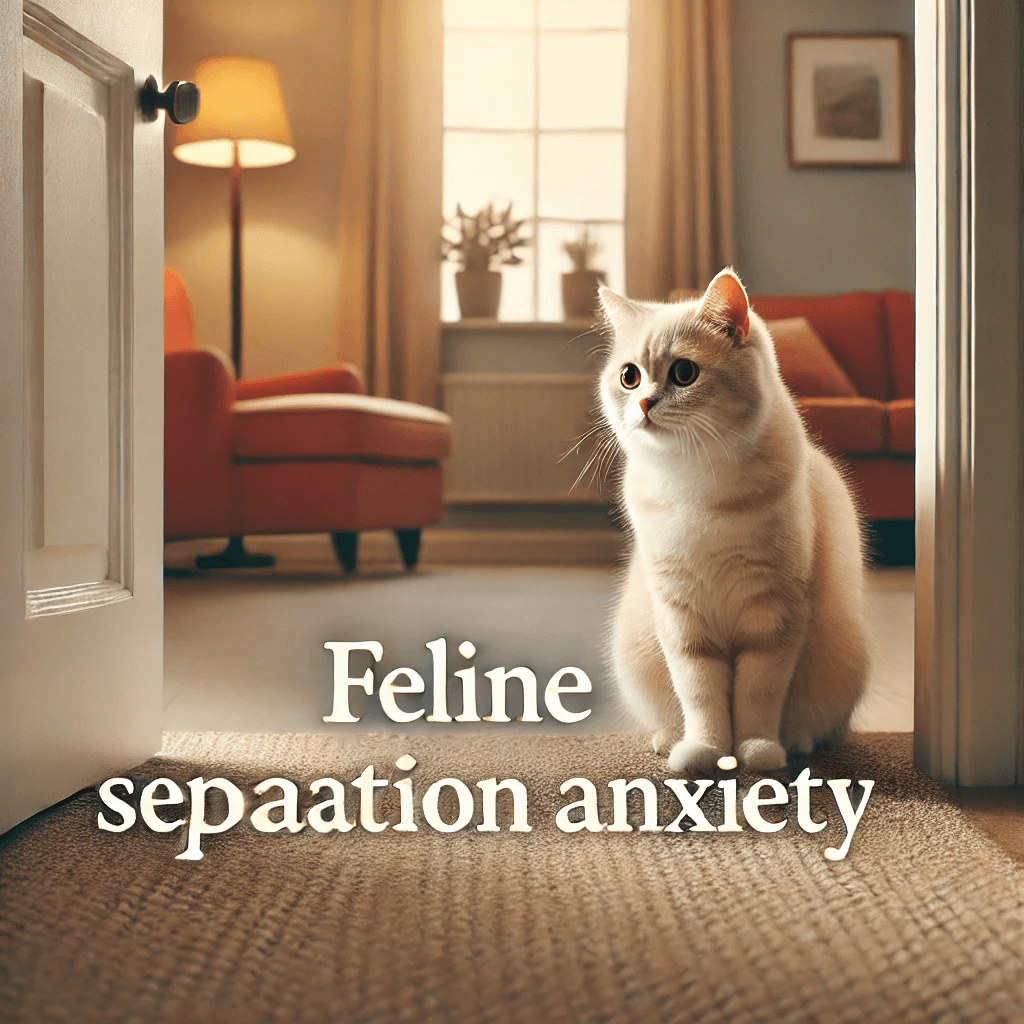What is Feline Separation Anxiety?
Feline separation anxiety occurs when a cat experiences stress or anxiety when separated from their owner. This condition is often characterized by destructive behavior, vocalization, or inappropriate elimination, all of which occur when the cat is left alone.

Common Causes of Separation Anxiety in Cats
Separation anxiety in cats can be caused by various factors, including:
- Change in Routine: Cats are creatures of habit, and changes in their daily routine can cause anxiety.
- Early Weaning: Cats that are weaned too early from their mothers may be more prone to anxiety later in life.
- Past Trauma: Cats with a history of abandonment or multiple rehoming experiences are more likely to develop separation anxiety.
Symptoms of Feline Separation Anxiety
If your cat suffers from separation anxiety, you may notice some of the following behaviors:
- Excessive vocalization (meowing, yowling) when left alone
- Destructive behavior like scratching furniture or knocking over objects
- Inappropriate elimination (urinating or defecating outside the litter box)
- Overgrooming or excessive licking
- Loss of appetite or refusal to eat when you’re not around

How to Help Your Cat Cope with Separation Anxiety
If your cat suffers from separation anxiety, there are several ways to help them feel more secure:
- Provide Stimulation: Leave toys, puzzle feeders, or interactive elements that keep your cat entertained while you’re away.
- Stick to a Routine: Cats thrive on routine. Ensure feeding and playtime occur at the same time each day to provide stability.
- Use Calming Products: Products like pheromone sprays or calming collars may help reduce anxiety in some cats.
- Gradual Desensitization: Practice leaving your cat for short periods and gradually increase the time spent away to help them adjust.
When to Seek Professional Help
If your cat’s separation anxiety persists despite your best efforts, it may be time to consult a veterinarian or a feline behaviorist. They can provide professional advice, and in some cases, medication or behavioral therapy may be necessary.
Conclusion
Feline separation anxiety can be distressing for both you and your cat, but with the right strategies, it’s possible to ease their anxiety. Understanding the causes and signs will help you take proactive steps to ensure your cat feels safe and secure when you’re away.





